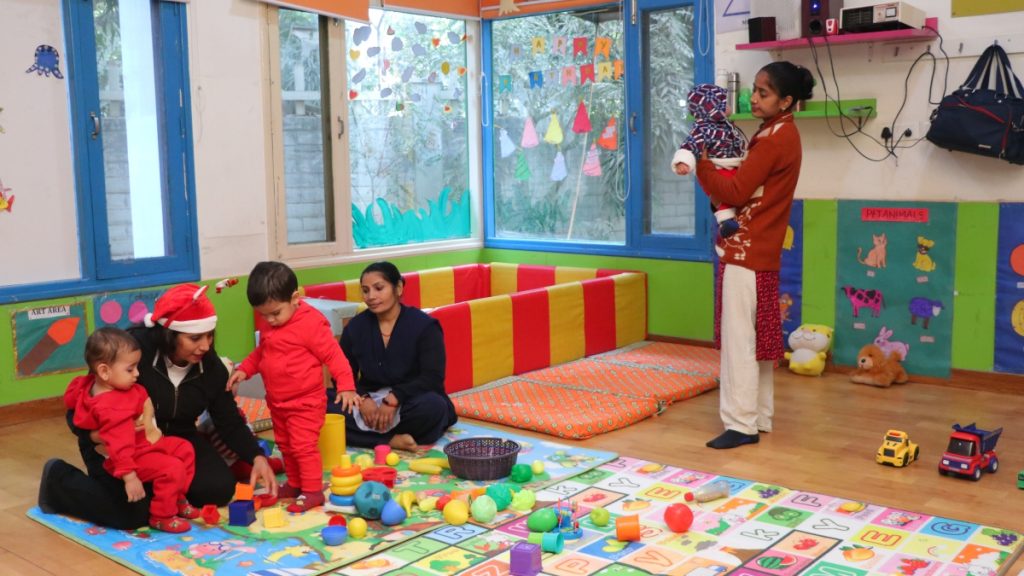Choosing the right childcare could really affect your child’s development. One of the major challenges parents face is identifying the nurturing environment that will support their child’s growth. Realising the significance of this decision helps to make wise decisions. Childcare is a key component of a child’s early life, and in this article, we discuss what parents need to know.
The Foundation for Lifelong Learning
The early years are when the most critical development of a child occurs. In those years, children develop the skills that form the basis for everything they will learn later in life. Childcare in South Melbourne focuses on offering an environment where young minds can flourish. Social bonding through play also encourages cognitive growth, emotional expression, and problem-solving skills. A quality program inspires curiosity and creativity, so a firm foundation for a lifetime of learning is established.
Socio-Emotional Development
It’s crucial to consider the social aspect of child care. When kids interact in a group, they pick up valuable social skills. Interactions with other children provide the opportunity to engage in cooperative and imaginative play, which also develops an understanding of empathy and the ability to share.
These emotional intelligence skills that are necessary for maintaining healthy relationships with others in the future. Caregivers also serve as role models to emulate positive behaviour and strengthen emotional resilience. Children learn how to deal with complicated emotions from supportive adults, leading to greater confidence and self-worth.
Physical Growth and Health
Another important aspect of a child’s growth is physical activity. Childcare programs that prioritise the quality of their services also know that proper movement and play are essential in ensuring that children develop health and fitness. Both gross and fine motor skills and coordination develop through outdoor play, dance, and sport-related activities.
In addition, nutrition and healthy eating habits lay the groundwork for a healthy lifestyle. Promotion of sports and a healthy diet in early childhood can help prevent health problems later in life.
The Psychology of Learning and Development
Language development plays an important role in cognitive development. In a rich environment, children are exposed to and engage with language in various ways. Listening to stories, songs, and engaging with peers and caregivers play a big part in developing vocabulary and communication skills.
Early exposure and practice with language also build the skills needed for literacy and school readiness. An effective program incorporates linguistic activities throughout daily routines so that each part of the day is an opportunity to communicate.
Safety and Security
Parents need to ensure that the facilities comply with safety standards and provide a safe environment for kids. This includes good supervision, secure areas, and continuity plans. Children who feel safe are more willing to take risks and participate in activities. This sense of safety allows them to learn and develop without fear or anxiety.
Parental Involvement and Communication
With good communication between caregivers and parents, childcare experience is better. Periodic updates regarding a child’s progress and activities keep the parents in the know and involved.
When you and the school work together openly, you help provide a support system for your child. The involvement of parents and caregivers to address concerns as well as celebrate successes can also ensure that the child continues to receive consistent support in their development, says Powell.
Choosing the Right Childcare
Finding the right childcare requires careful selection based on certain factors. Parents must evaluate the philosophy, curriculum, and qualifications of the caregivers. Visiting sites, observing behaviours, and knowing the right questions to ask is often an insight.
To keep both children and parents happy, it’s crucial to provide a welcoming environment that aligns with the family’s values. Moreover, recommendations from other parents could provide a useful angle.
Conclusion
Investing in childcare can help your child later in life, especially if you have a busy work schedule. Quality childcare in a nurturing environment in which children play and learn promotes development in multiple domains. When parents take the time to choose wisely, the best option, they set up their kids for success, health, and happiness. The positive impact of choosing quality childcare becomes more obvious over time, making this decision just as important a few years down the road.
